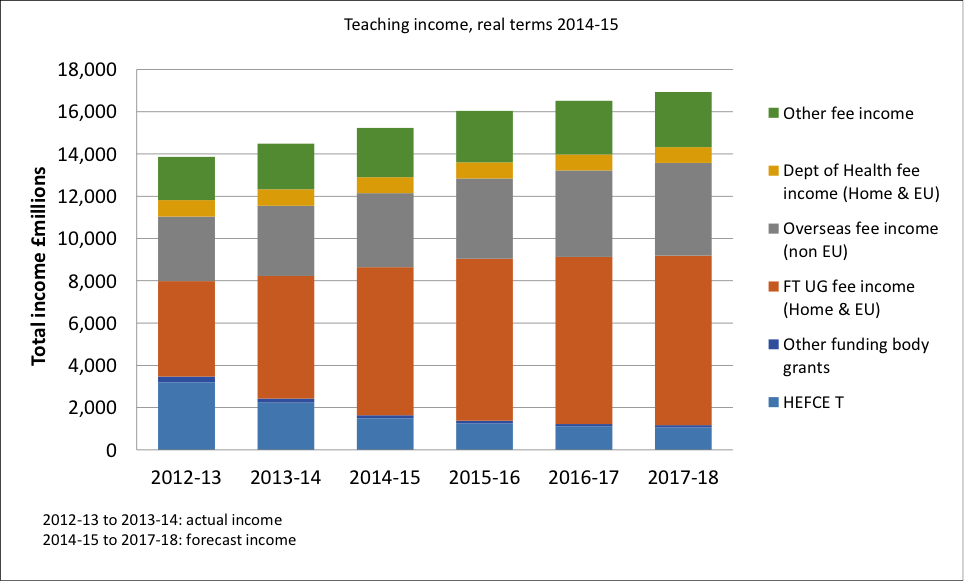FREE(?)dom of Information and the uneven playing field
What is the cost of the Freedom of Information Act to universities? Michaela Boryslawskyj, University Secretary at the University of Huddersfield, considers the impact of FOI and alternative ways universities show transparency and accountability.


The government’s higher education Green Paper contains varied proposals for tackling the uneven playing field that exists between HEFCE-funded providers and alternative providers, in terms of costs and responsibilities, particularly in relation to the public body requirements, which do not apply to alternative providers. It is estimated that the cost to providers of being subject to the freedom of information regime is in the region of £10m per annum, which is clearly a large financial and administrative burden to bear.
The principle of all higher education providers being subject to the same requirements is laudable; however, the suggestion that universities may be exempted from the freedom of information regime has received a mixed response.
There are compelling arguments in terms of openness, transparency and accountable decision-making. Supporters have claimed without the FOI regime they would not have been able to ascertain details on senior pay and divestment policies, which they argue are in the public interest.
However, on the flip side universities are drowning in the volume of requests, including those from commercial organisations and requests for spurious information such as the identity of the youngest pro vice-chancellor, number of hauntings, ice cleats purchased, and lists of items reported as lost or stolen! The Press Gazette has launched a petition, as part of the Society of Editors’ Hands Off FOI campaign, against the ‘weakening’ of the Freedom of Information Act, which states ‘investigative journalism is time-consuming, expensive and sometimes difficult to justify for news organisations which are under financial pressure’; this has to be balanced against the time required for 132 universities to consider and respond to a blanket request from a journalist and arguably it is far more difficult for universities to justify dedicating precious resource to responding to requests from commercial organisations trying to gain a competitive advantage, often to the sector’s detriment. Requests from journalists/commercial organisations accounted for 54% of the total FOI requests we received at Huddersfield last year, whilst requests from our staff and students accounted for a mere 5%.
The sector does not operate in secrecy or behind closed doors; we are accountable to HEFCE, our governing bodies, our staff and students. Our financial statements are subject to external audit and are publicised; we have negotiating committees with the unions. We have an annual accountability returns process, which involves the submission of a vast quantity of data – yet numerous FOI requests relate to information which is readily available from HESA (although admittedly sometimes in a slightly different format).
Having recognised the importance of transparency, accountability and honest dialogue, here at Huddersfield, we regularly run “Ask” sessions, in which students can put any question they like to key members of senior staff. We have staff and student representation throughout our governance structures. Staff are regularly briefed on the University’s progress towards its strategic aims and matters of importance. We have termly meetings, supplemented by a strong, working relationship between the University executive and the Students’ Union. It may be unbridled optimism, but I hope that these constructive engagements (which are replicated across the sector) mean our staff and students have limited need to resort to FOI on matters of public interest.
So should universities be exempt from FOI? It seems strange that when the majority of the green paper focuses on the need to provide more information to students, an exemption from the FOI regime is being considered. However, I think many IT/planning departments would welcome such a change with open arms and it would be nice to get through a week without having to list the model/number of printers held across the University. Investigative journalism should be just that; but too often in the sector we receive badly worded or considered requests which do not seem relevant to issues of major public interest. Precious resources (which increasingly means students fees) are being diverted from core activity to assist private, profit-making, commercial companies.
There is some recognition that in the absence of the FOI regime, the sector may need to be more transparent as to its internal dealings (which is reflected in the green paper at paragraph 18 – ‘some exceptions to the general rule if it were in the interest of students and the wider public’). Arguably the legitimate concerns that have been raised in terms of accountability and transparency could be assuaged by a recognition that we operate to recognised governance standards, which could perhaps be supplemented by strengthened HESA reporting requirements (with auditing) and/or a sector-wide publication scheme, including a requirement (rather than an option for consideration) to publish the agendas and minutes of governing body meetings.
FOI has played an important role in promoting transparency and accountability, but it is sometimes used and abused for nefarious purposes – maybe an alternative approach could offer a more appropriate compromise for all?
